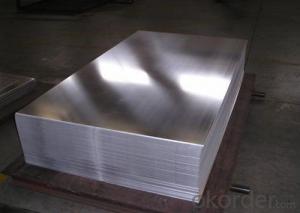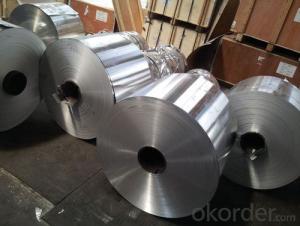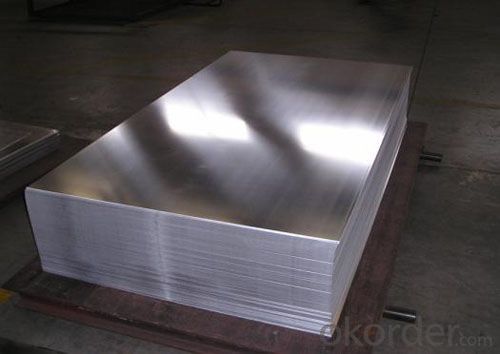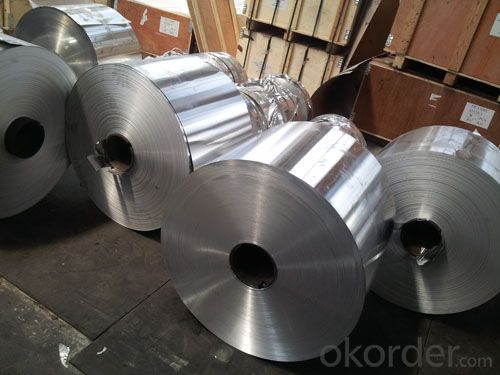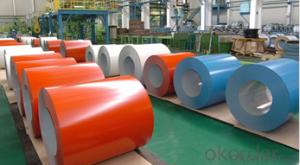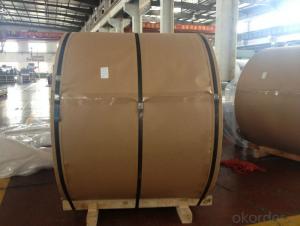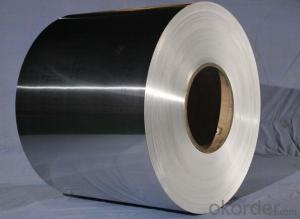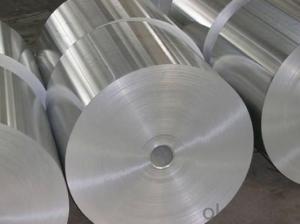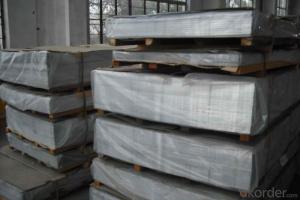Amerimax Aluminum Coil for Mill Finished Blind Windows
- Loading Port:
- Shanghai
- Payment Terms:
- TT OR LC
- Min Order Qty:
- 5 m.t.
- Supply Capability:
- 80000 m.t./month
OKorder Service Pledge
OKorder Financial Service
You Might Also Like
Specification
Mill Finished Aluminium Coil For Blind Windows
Description
Alloy | 1060, 1100, 3003, 8011, etc. |
Temper | H16, H18, H24, H26, H28 |
Thickness | From 0.05mm to 3.0mm |
Width | Standard width:1240mm |
Special width:1300mm, 1520mm, 1570mm, 1595mm | |
Diameter | Standard dia:1200mm |
Interior dia:150mm,405mm,505mm | |
Weight | 2.5 T/coil,3.0 T/coil |
Coating | PE, PVDF, ACRYLIC |
Surface | Embossed, mill finish, coated |
Color | AS to code RAL |
Gloss | 10-90%(EN ISO-2813:1994) |
Coating Thickness | PE: more than 18 micron |
PVDF: more than 25 micron | |
Coating Hardness(pencil resistance) | More than 2h |
Coating adhesion | 5J (EN ISO-2409:1994) |
Impact Resistance | No peeling or cracking(50 kg/cm,ASTMD-2794:1993) |
Flexibility(T-bend) | 2T |
MEK resistance | More than 100 |
Advantage | 1.High temperature resistant 2.Weathering resistant 3.Scrubbing resistant 5.Acid or alkali proof 6. Fireproof 7.Light weight material is easy to construct and install |
Out package | Wooden splint with export standard |
Application | ACP, wall cladding, facades, roofs and canopies, ceilings, signboards, blind window, display platforms, electrical panels, etc |
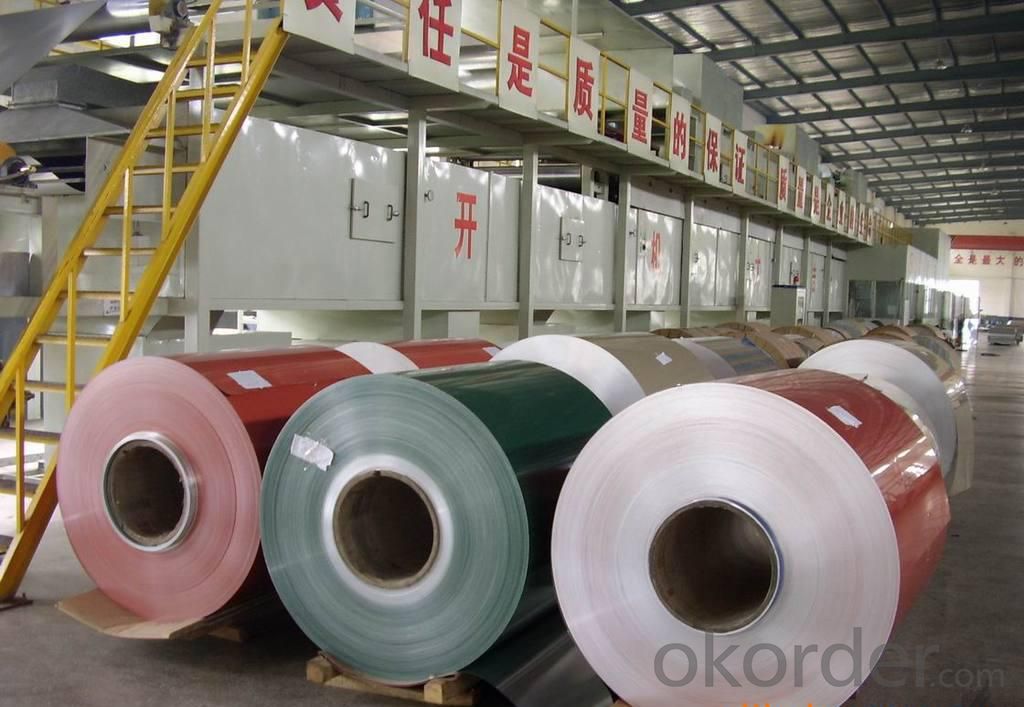
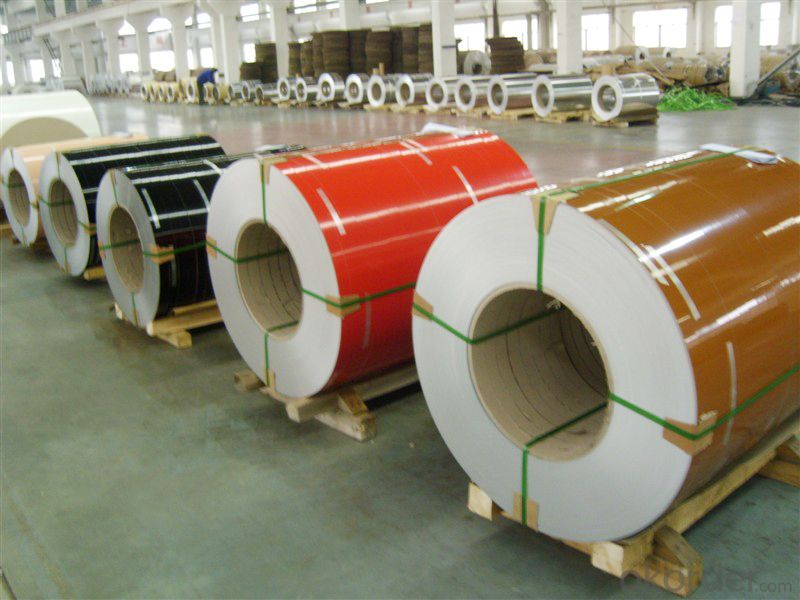
FAQ
--Q: Do you provide free samples?
--A: Yes, free samples will be sent to you on freight at destination.
--Q: Can I get your latest products catalogue?
--A: Yes, it will be sent to you in no time.
--Q: What is the MOQ?
--A: 2 tons
--Q: What are your payment terms?
--A: We accept L/C, T/T.
--Q: What kinds of alloy can you supply?
--A: 1000 series: 1050, 1060, 1070, 1100, 1145, 1200
3000 series: 3003, 3004, 3105, 3104
5000 series: 5052, 5083, 5754, 5182
6000 series: 6061, 6063, 6062, 6063
8000 series: 8011, 8021
--Q: What kinds of temper can you supply?
--A: O-H112: O,H12,H14,H16,H18,H22,H24,H26,H,32,H34,H111,H112
T3, T4, T6
- Q: Can aluminum coils be used in the production of electronic devices?
- Yes, aluminum coils can be used in the production of electronic devices. Aluminum is a versatile and widely used material in various industries, including electronics. It possesses excellent electrical conductivity and thermal conductivity, making it suitable for use in electronic components such as coils and inductors. Aluminum coils are commonly used in power transformers, motors, generators, and other electronic devices where the transfer of electrical energy is necessary. Additionally, aluminum is lightweight, durable, and cost-effective, making it an attractive choice for manufacturers. However, it is important to note that the specific application and requirements of the electronic device will determine the suitability of aluminum coils.
- Q: Is it possible to utilize steel wires in the creation of jewelry or decorative items?
- <p>Yes, you can use steel wires for making jewelry or decorations. Steel wires are durable and can be shaped into various forms, making them suitable for a range of designs. They are often used in wire wrapping techniques and can be combined with beads or other materials. However, it's important to consider the type of steel used; stainless steel is more resistant to rust and is commonly preferred for jewelry making. Additionally, steel wires may require special tools for cutting and bending, and proper safety measures should be taken during the crafting process.</p>
- Q: What is the maximum length of aluminum coils?
- The maximum length of aluminum coils can vary depending on various factors such as the specific manufacturing process, equipment capabilities, and industry standards. However, in general, aluminum coils can be produced in lengths ranging from a few hundred feet to several thousand feet. These coils are typically used in applications such as roofing, HVAC systems, and electrical wiring. It is important to note that the maximum length of aluminum coils may also be limited by transportation and handling considerations.
- Q: What is the typical tensile strength of aluminum coils?
- The typical tensile strength of aluminum coils can vary depending on the specific grade and temper of the aluminum being used. Generally, aluminum coils have a tensile strength ranging from 30,000 to 75,000 pounds per square inch (psi). However, it is important to note that this range can be narrower or wider depending on the intended application and the specific alloy being used. Additionally, factors such as the thickness and width of the coil may also impact the tensile strength.
- Q: How are aluminum coils protected against galvanic corrosion?
- Aluminum coils are protected against galvanic corrosion through a combination of surface treatments and protective coatings. One common method is the application of a thin layer of anodization on the aluminum surface. Anodization involves electrolytically treating the aluminum with an acid solution, which creates a protective oxide layer on the surface. This oxide layer acts as a barrier, preventing the direct contact between the aluminum and other metals that may cause galvanic corrosion. Another method is the use of a protective coating, such as a polymer or paint, on the aluminum coils. These coatings provide a physical barrier between the aluminum and the environment, preventing the exposure of the metal to corrosive elements. The coatings are carefully selected to have good adhesion to the aluminum surface and excellent resistance to corrosion. In addition to surface treatments and coatings, proper design and material selection also play a crucial role in protecting aluminum coils against galvanic corrosion. By ensuring that dissimilar metals are not in direct contact and using compatible materials, the risk of galvanic corrosion can be minimized. This can be achieved through the use of isolation materials, such as gaskets or insulating tapes, to separate the aluminum coil from other metals in contact. Regular maintenance and cleaning also contribute to the protection against galvanic corrosion. It is important to remove any accumulated dirt, debris, or corrosive substances from the aluminum coils to prevent the formation of localized corrosion cells. Overall, a combination of surface treatments, protective coatings, proper design, and regular maintenance are essential in protecting aluminum coils against galvanic corrosion. These measures help to extend the lifespan and maintain the performance of the coils in various applications.
- Q: How are aluminum coils protected against damage during handling?
- Various methods and precautions are employed to protect aluminum coils from damage during handling. To begin with, the coils are typically enveloped in a protective layer, such as plastic or paper, which serves as a barrier against physical contact and scratches. This wrapping also serves to prevent direct contact with moisture or dirt. Furthermore, aluminum coils are frequently affixed to pallets or housed within crates to provide additional protection during transportation. These pallets or crates serve as a buffer, absorbing any shocks or impacts that may occur during handling or shipping. This effectively reduces the risk of dents, bends, or other types of damage that could compromise the coils' integrity. Moreover, proper handling techniques are employed to ensure the coils are not mishandled or dropped. Forklifts or cranes are commonly utilized to lift and move the coils, thereby minimizing the possibility of human error or accidental damage resulting from manual handling. In conclusion, a combination of protective wrapping, secure packaging, and careful handling practices are implemented to safeguard aluminum coils against potential damage throughout their transportation and handling procedures.
- Q: What is the typical coil width for aluminum coils?
- The typical coil width for aluminum coils can vary, but it is commonly found in the range of 12 inches to 60 inches.
- Q: What specific conditions or criteria must be met when utilizing aluminum coils?
- <p>There are several special requirements for using aluminum coils. They should be stored in a dry and clean environment to prevent corrosion. The coils must be handled carefully to avoid scratches or dents that could affect their performance. When used in manufacturing, the specific alloy type and temper of the aluminum coil must be considered as they influence properties like strength and malleability. Additionally, the thickness and width of the coil should match the requirements of the application to ensure proper fit and functionality. Adherence to safety standards during the handling and processing of aluminum coils is also crucial to prevent accidents and ensure quality control.</p>
- Q: Explain the distinction between aluminum coil and copper coil, highlighting their properties and uses.
- <p>Aluminum coil and copper coil are both metal coils used in various industries, but they have distinct properties. Aluminum coil is lighter, more corrosion-resistant, and less expensive than copper coil. It is often used in applications where weight and cost are concerns, such as in construction and electrical wiring. Copper coil, on the other hand, has superior electrical conductivity and is more ductile, making it ideal for electrical applications where high conductivity is required, such as in power transmission cables and wiring for electronics. Copper is also used in plumbing due to its resistance to corrosion. In summary, the choice between aluminum and copper coil depends on the specific requirements of the application, including factors like conductivity, weight, cost, and resistance to corrosion.</p>
- Q: How are aluminum coils protected against moisture during storage?
- Aluminum coils are typically protected against moisture during storage through the use of various methods and materials. One common method is the application of a protective coating, such as a thin layer of oil or a corrosion-resistant film, which forms a barrier between the coil and any moisture present in the environment. This coating helps to prevent direct contact between the aluminum surface and water, minimizing the risk of corrosion or other moisture-related damage. In addition to protective coatings, aluminum coils may also be stored in a controlled environment with low humidity levels. This can be achieved by storing the coils in a dry warehouse or using dehumidifiers to remove excess moisture from the storage area. By controlling the humidity, the risk of moisture condensation on the coils is reduced, further protecting them from potential damage. Furthermore, proper packaging is crucial in protecting aluminum coils against moisture during storage. Coils are often wrapped in moisture-resistant materials, such as plastic or moisture-proof paper, to create a barrier that prevents moisture from reaching the coils. Additionally, the packaging is often sealed to provide an airtight environment, further minimizing the chances of moisture ingress. Regular inspection and maintenance are also important to ensure the continued protection of aluminum coils during storage. This includes checking the integrity of the protective coatings, monitoring the storage environment for any changes in humidity levels, and promptly addressing any signs of moisture damage. Overall, the use of protective coatings, controlled storage environments, proper packaging, and regular maintenance are key factors in protecting aluminum coils against moisture during storage. By implementing these measures, the risk of moisture-related damage is significantly reduced, ensuring the quality and integrity of the coils until they are ready for use.
Send your message to us
Amerimax Aluminum Coil for Mill Finished Blind Windows
- Loading Port:
- Shanghai
- Payment Terms:
- TT OR LC
- Min Order Qty:
- 5 m.t.
- Supply Capability:
- 80000 m.t./month
OKorder Service Pledge
OKorder Financial Service
Similar products
Hot products
Hot Searches
Related keywords
